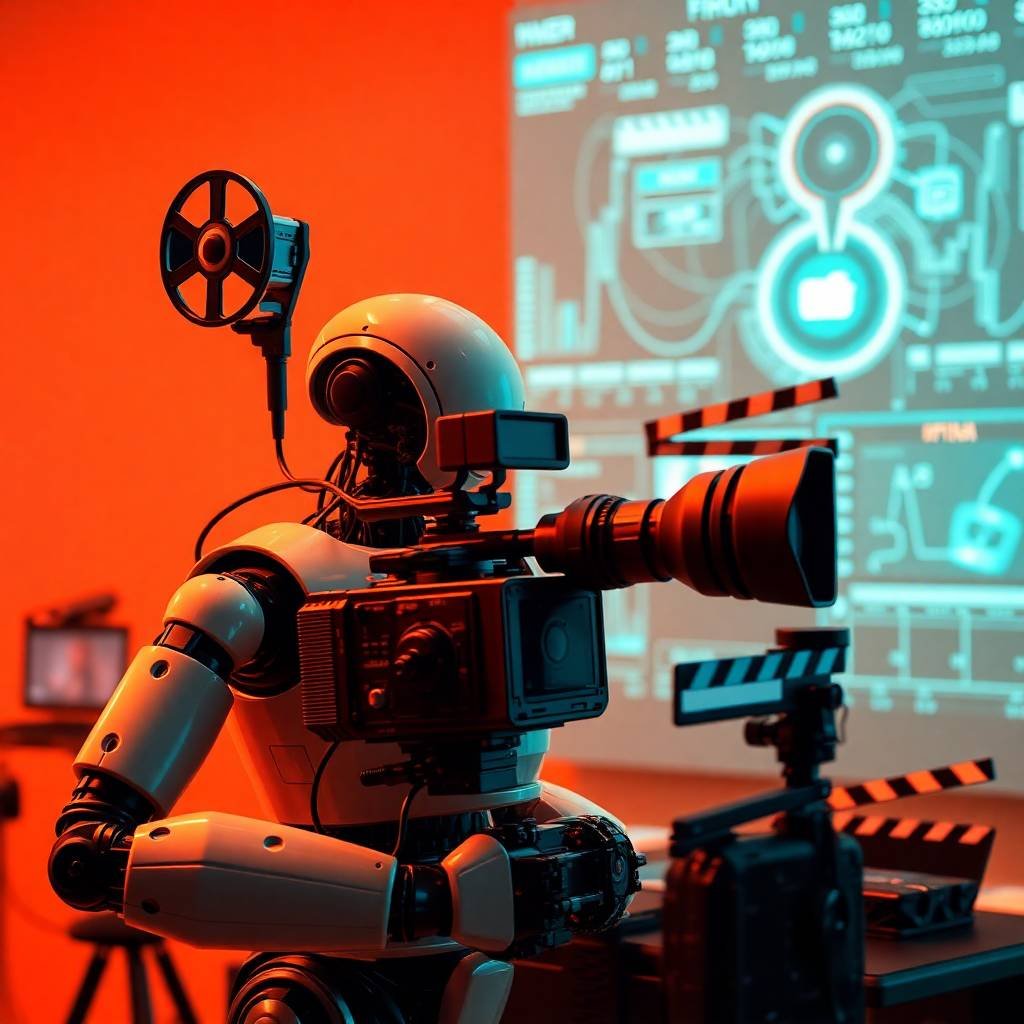Introduction
The film industry has long been a playground for technological innovation, continuously evolving to enhance storytelling and production efficiency. Today, one of the most groundbreaking developments influencing this landscape is Artificial Intelligence (AI). From concept to final cut, AI is reshaping the way films are made, offering unprecedented tools that streamline processes and spark new creative possibilities.
Applications of AI in Film Production
Scriptwriting and Storyboarding
AI is revolutionizing the scriptwriting process by providing writers with tools that generate script ideas and drafts based on input data. These AI systems can analyze vast amounts of existing scripts, identify patterns, and suggest innovative concepts, helping writers overcome creative blocks. Additionally, AI assists in storyboarding by visualizing scenes and layouts, allowing directors to better plan their shots and sequences.
Casting and Talent Analysis
In casting, AI tools can analyze data from actors’ past performances, audience reactions, and even social media presence to recommend the best candidates for roles. This data-driven approach helps producers make informed decisions, ensuring a perfect match between talent and character requirements. AI can also predict on-screen chemistry, further refining the casting process.
Visual Effects and Animation
AI is making waves in the world of visual effects (VFX) by automating complex and time-consuming tasks. From rendering to simulations, AI algorithms enhance efficiency, allowing artists to focus on more creative aspects of VFX. AI-driven tools can create lifelike animations and effects, often at a fraction of the time and cost of traditional methods.
Benefits of AI in Film Production
Increased Efficiency
AI technology significantly boosts efficiency in film production by automating repetitive and time-consuming tasks. This allows filmmakers and production teams to allocate more time to the creative aspects of the filmmaking process. With AI, production timelines are shortened, and costs are reduced, enabling filmmakers to deliver high-quality content faster than ever before.
Enhanced Creativity
AI opens up new avenues for creativity by providing filmmakers with innovative tools and techniques. These AI-driven tools offer fresh perspectives and possibilities, allowing creators to experiment with narrative structures and visual styles. By facilitating the exploration of new creative territories, AI empowers filmmakers to push the boundaries of traditional storytelling.
Challenges and Considerations
Ethical Concerns
As AI takes on a larger role in film production, questions about authorship and originality become increasingly important. The ability of AI to generate content raises concerns about the human element in art, challenging traditional notions of creativity and authorship. It’s essential to navigate these ethical considerations carefully to ensure that the integrity of the creative process is maintained.
Job Displacement
While AI enhances efficiency and innovation, it also poses a potential threat to certain roles within the film industry. Automation of tasks previously performed by humans can lead to job displacement, necessitating a thoughtful approach to technology integration. Balancing technological advancement with job preservation is crucial to maintaining a healthy industry ecosystem.
The Future of AI in Film Production
As AI technology continues to advance, its role in film production is set to expand even further. With ongoing developments in machine learning and neural networks, AI tools will become even more sophisticated, offering filmmakers new capabilities for storytelling and production. Future innovations may include AI systems that can autonomously create entire films based on minimal human input or tools that provide real-time feedback during the shooting process.
Moreover, AI holds the potential to drive sustainability in film production by optimizing resource use and reducing waste. As filmmakers increasingly seek to minimize their environmental impact, AI can offer solutions for more sustainable practices.
Conclusion
AI is undeniably reshaping the landscape of film production, delivering efficiencies and creative opportunities that were once unimaginable. While challenges remain, the potential benefits of AI in the film industry make it an essential tool for future storytelling. As AI technologies continue to evolve, filmmakers who embrace these innovations will be well-positioned to lead the charge in creating groundbreaking cinematic experiences.

